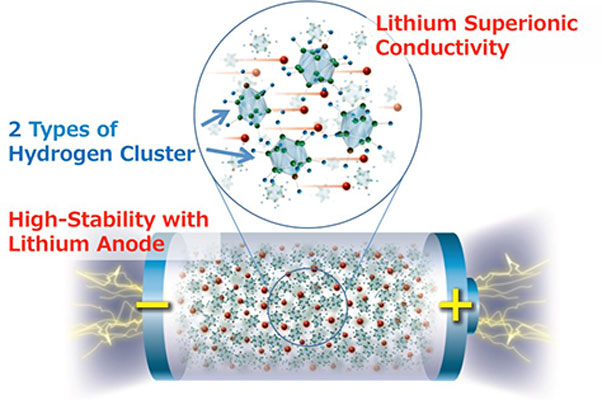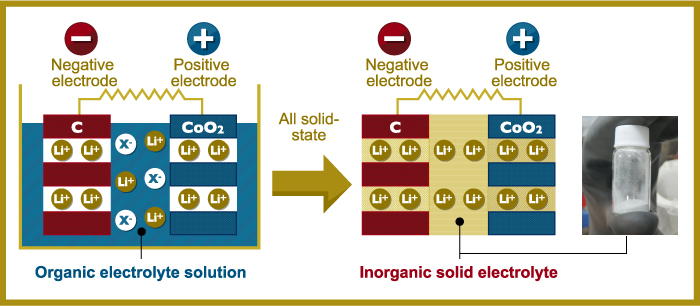Tohoku University, near the northern Japanese city of Sendai, finds, in a recent paper, “…The development of complex hydride solid electrolytes that exhibit high ionic conductivity at room temperature will be a revolutionary breakthrough for all-solid-state batteries employing a lithium metal anode.” Researchers at the University lists the potential energy density for a battery using these so-called “superionic” materials as greater than 2,500 Watt-hours per kilogram “at a high current density of 5,016 miliAmps per gram. This energy density would result in the fabled 10X battery – ten times the energy density of a conventional lithium-ion battery – that has been the subject of international research for the last decade. Tohoku’s press release states, “Scientists from Tohoku University and the High Energy Accelerator Research Organization have developed a new complex hydride lithium superionic conductor that could result in all-solid-state batteries with the highest energy density to date:” Led by Sangryun Kim from the Institute of Material Research (IMR) and Shin-ichi …
Lowered Resistance, Greater Spontaneity with Solid-State Batteries
Paradoxically, almost every battery breakthrough seems to have an accompanying problem, and battery developers end up sometimes ditching the positive because of an overriding negative. Solid-state batteries promise some gains without compromise, though. Conventional lithium-ion batteries have possibly reached the limit of their capacity, some scientists fear, and still remain prone to issues like thermal runaway. Developers have looked at solid-state battery designs in which even the electrolyte is solid and not prone to bursting into flame. These batteries promise to have higher energy densities and longer lives, but high resistance at the electrolyte-electrode interface tends to interfere with charging and discharging speeds. Two groups of researchers at the Tokyo Institute of Technology have been taking different approaches to creating a solid-state battery with improved performance and few of the disadvantages of more conventional lithium cells. Stacking Battery Components Scientists from Tokyo Institute of Technology and Tohoku University, led by Professor Taro Hitosugi, “Fabricated all-solid-state batteries with extremely low interface …


